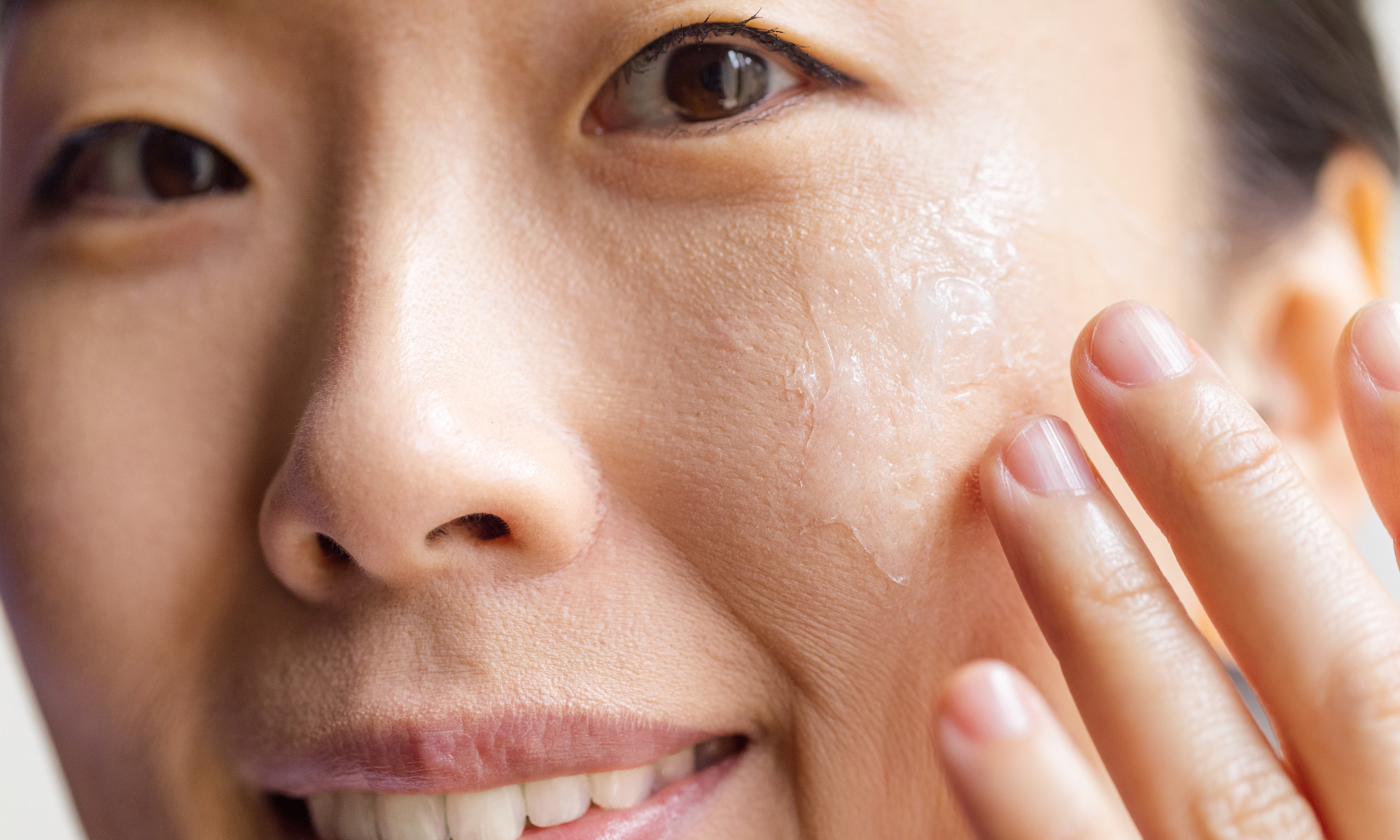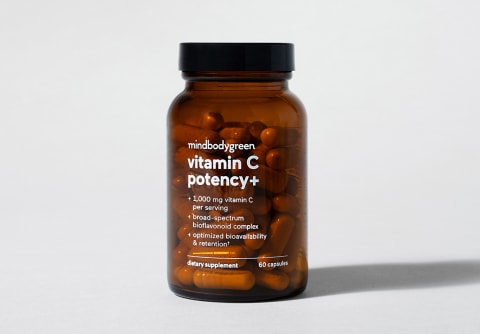Wait, Can Vitamin C Lead To Clogged Pores? This Derm Says Maybe
Vitamin C breaking you out? You're not alone.

Advertisement
This ad is displayed using third party content and we do not control its accessibility features.

Beauty & Health Editor
Beauty & Health Editor
Hannah Frye is the Beauty & Health Editor at mindbodygreen. She has a B.S. in journalism and a minor in women’s, gender, and queer studies from California Polytechnic State University, San Luis Obispo. Hannah has written across lifestyle sections including beauty, women’s health, mental health, sustainability, social media trends, and more. She previously worked for Almost 30, a top-rated health and wellness podcast. In her current role, Hannah reports on the latest beauty trends and innovations, women’s health research, brain health news, and plenty more.
Image by Stocksy // Studio Firma November 26, 2024 We carefully vet all products and services featured on mindbodygreen using our Our selections are never influenced by the commissions earned from our links. Dermatologists everywhere recommend vitamin C to their patients to help combat dark spots, brighten the complexion, and provide antioxidant protection. It’s no wonder these serums are a staple in many morning skin care routines. However, more and more people have been taking to TikTok to share their experiences with certain vitamin C serums, noting that once they stopped using them, their skin actually cleared up. It begs the question: Could there be link between vitamin C and breakouts? 
Can vitamin C serums cause breakouts?
“I think it is possible,” Greenfield says. “Vitamin C is oftentimes only one of dozens of ingredients in the product, and many of those non-actives may cause a non-ideal reaction in your skin, resulting in what appears to be breakouts."
Essentially, it might not be the vitamin C itself; some of those other ingredients in the mix may cause your skin to react (think irritation, redness, etc.) or directly clog your pores. Run your vitamin C serum’s ingredient list through a pore-clogging ingredients checker (like this one from Acne Clinic NYC), and you may notice that it contains a potentially clogging ingredient.
Let's say your product is acne-friendly, yet you’re still seeing breakouts: It could be from that irritation mentioned earlier. The solution? Look for products formulated for sensitive skin types, Greenfield says.
“If one product is not effective or causing acne, don’t give up completely on vitamin C just yet,” she adds. Instead, consider switching brands. Some serums are more potent (namely, ones with ascorbic acid) but come with drawbacks like increased skin sensitivity; if that sounds like you, seek another, gentler form of vitamin C. Greenfield prefers something more natural-leaning and plant-based, like the REN Clean Skincare Glow Daily Vitamin C Gel Cream, as it uses plant-based emollients like sunflower seed oil and rosemary leaf extract.
Finally, if your skin simply doesn’t like vitamin C, that’s OK. You don’t have to use this ingredient topically to have great, healthy skin. What’s more, ingesting vitamin C via supplements may even provide the same skin care benefits without the fuss.
The takeaway
While vitamin C is generally an ingredient winner for most people, not everyone can tolerate this antioxidant for topical use. If you’re noticing breakouts or irritation from your vitamin C, consider switching brands or opt for a vitamin C supplement instead.

 Tekef
Tekef 

































